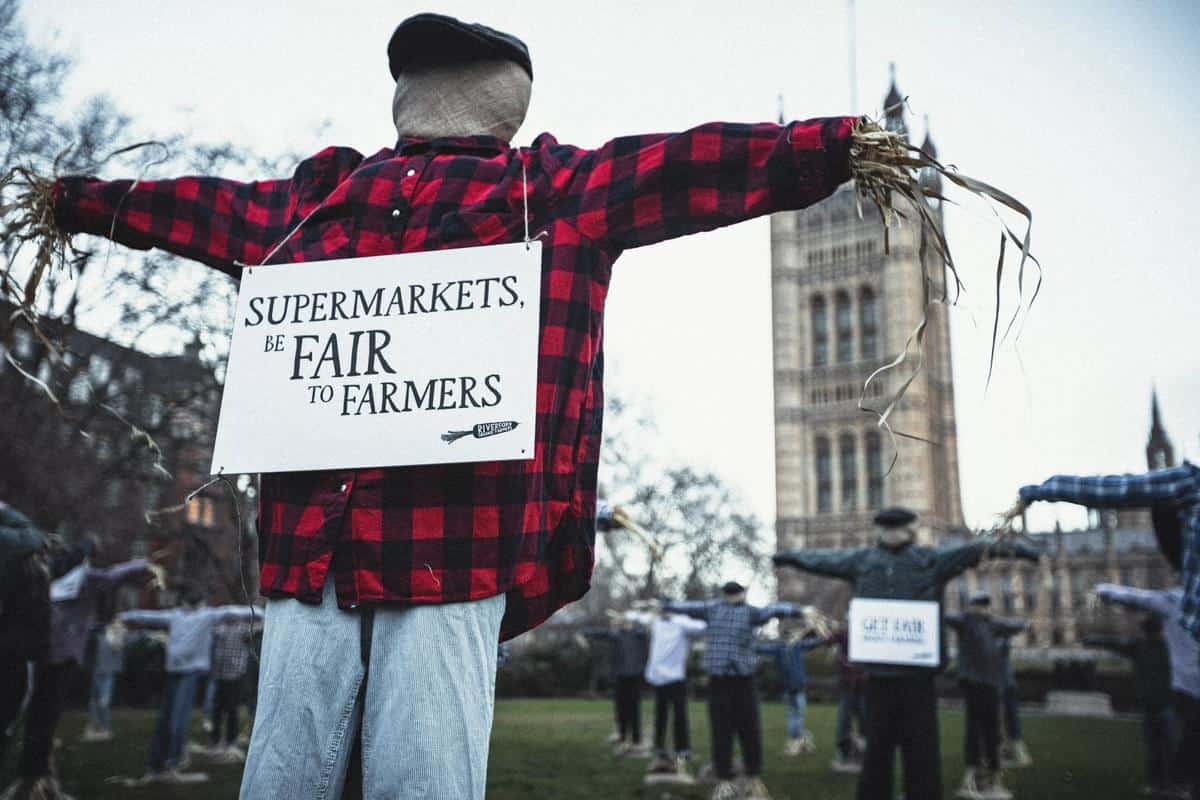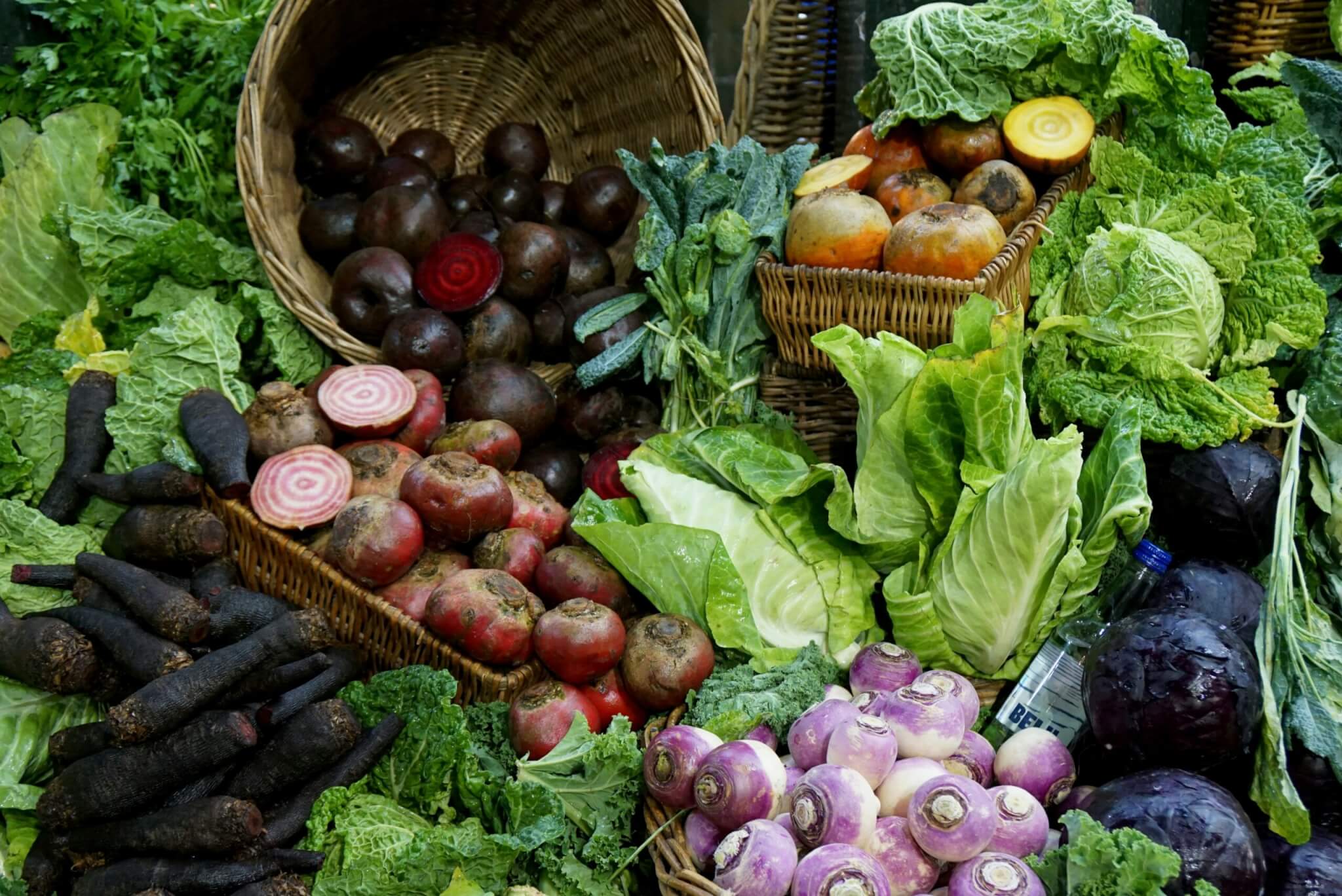Despite unanimous cross-party support, Riverford’s #GetFairAboutFarming Parliamentary debate on January 22nd ended on a less than reassuring note with Mark Spencer MP, Minister of State for Food, Farming and Fisheries, stating that he did not believe the GSCOP needed to be reformed, and that farmers would be better protected with the introduction of a new set of statutory codes under the Agriculture Act.
Progress towards the introduction of these codes – and urgently needed reform – remains extremely slow and no definitive dates re these actions have presently been agreed by the government.
What we need to see
Riverford and Sustain have worked together to propose some crucial ways to successfully move away from the current problematic approach, governments could:
- Create food hub pilot funds, with £5 million to set up 15 new food hubs across England
- Develop growth action plans, to increase the market share of farmer-focused supply chains to 10 per cent
- Create a local food fund, to invest in smaller scale and localised infrastructure and supply chains
- Introduce a long-term plan to build up more, shorter, and farmer-focused routes to market that would not only allow British family farmers to make a fair return on their produce, but also enable them to invest in decent jobs for rural communities, protecting our climate and nature, and strengthening our supply of high-quality, homegrown food for generations to come
In Sustain’s Beyond The Farm Gate Report, 56 per cent of farmers also said they’d want to supply into markets other than the main supermarkets. Doing so would give better margins, more direct links to the customer, deliver more for climate and nature, and build more resilience into the business. Many farmers also felt that changing supply chains would help them deliver on soil management, animal welfare, public engagement and better wages for staff.
So, what now for the 49 per cent of fruit and veg farmers for whom time is of the essence and fear they will be out of business within the next 12 months?
If you’re a UK farmer, here are a two of the ways in which you can share your experiences and help influence policy making in the future:
- DEFRA Consultation on Supply Chain Fairness (Fresh Produce Industry): This survey allows growers to express their views on supply chain unfairness and influence upcoming codes of practice. Participate in the survey here.
- The GCA Annual Survey: Open for suppliers to report unfairness at the farm level caused by retailer behaviour. The survey can be filled out online.
If you’re a citizen, you can support British farmers and help raise awareness for unfair practices, while also becoming less reliant on supermarkets. Here’s how:
- Can you support a local farm shop or farmer’s market? You can also search by the produce you’re looking for (from milk and eggs to meat and veg) and locate your nearest Community Supported Agrictulture (CSA) scheme here
- Is there a veg box scheme near you that works with or delivers direct from local farms?
- Could you start or join a local food co-op? Read Sustain’s exhaustive guide on setting one up here
- If you’re in London and want to learn more about food production and climate impact, you can do so through the work of Capital Growth
- Sustain produce a free Good Food Guide for those who want to learn how to eat and buy more sustainably and there’s a wealth of additional resources and info here, including waste-free tips and Fair Trade advice
- Do you work for or help run a school or business that might be open to sourcing produce from a local farmer, as part of a long-term partnership? Sustain’s Good Food at Work guide is a great place to start
- Say No to Fake Farms. Supermarkets regularly invent fake ‘British farm’ brand names to sell produce that’s made in a factory or flown in from the other side of the world. Customers are hoodwinked into thinking they’re buying direct from the farm – while real British family farmers are being priced out of the market.
We believe that the deceptive use of fake farms should be made illegal, empowering the consumer to make the choice themselves. Spot some serious greenwashing at your local supermarket? Post a pic and tag us at @wickedleeks using hashtag #fakefarms













0 Comments